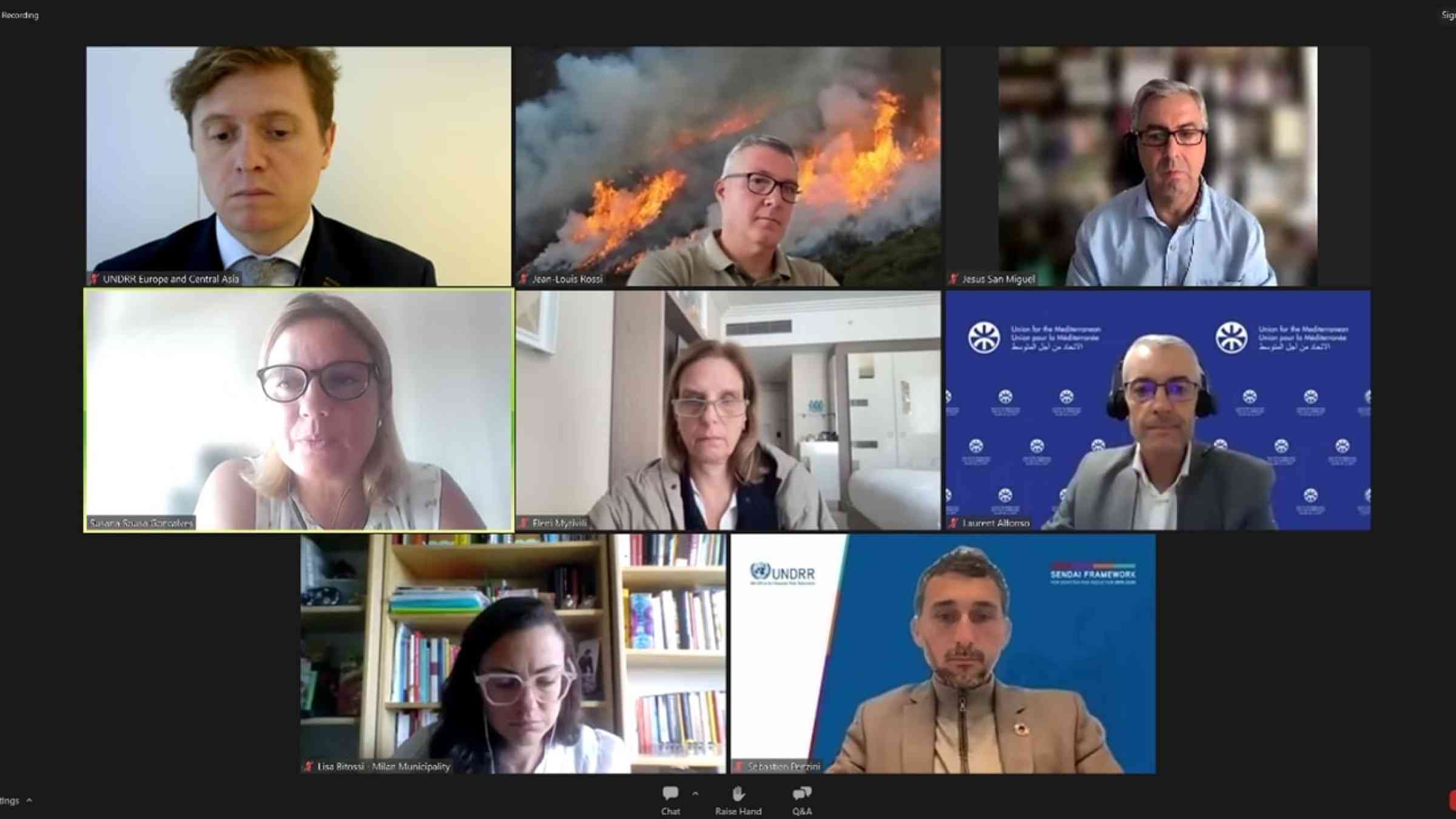Tackling Urban Heat and Wildfire Risk with Inclusive Governance Systems

The MCR2030 Webinar on “Innovating Heat and Wildfire Risk Governance” brought together participants from Europe and Central Asia.
A webinar was held on 3 October 2023, as part of the Making Cities Resilient 2030 (MCR2030) Initiative, contributing to the implementation of the European Forum for Disaster Risk Reduction Roadmap (EFDRR) for 2021-2030.
The webinar brought together over 150 participants to share knowledge, solutions, and tools for addressing the challenges of reducing heat and wildfire risks, with a commitment to leaving no one behind. It featured perspectives from academia and local municipalities.
Mr. Sebastien Penzini, Deputy Chief (Chief a.i.) of UNDRR Regional Office for Europe and Central Asia, welcomed participants, underlining the importance of finding collaborative solutions to addressing heat and wildfire risk management.
Ms. Eleni Myrivili, Global Chief Heat Officer at UN-Habitat & Arsht-Rock Resilience Center, and Board Member of the EU Mission for Adaptation opened the discussion:
"We have talked about global warming for a long time, but we haven't focused enough on the impact of heat at various levels on our population, cities, and ecosystems."
Dr. Jean-Louis Rossi, Assistant Professor at the University of Corsica P. Paoli, recommended several solutions to reduce wildfire risk, including shifting from suppression to prevention, improving awareness and risk information, integrating realistic societal behavior, and giving science and technology a central role in fire-risk reduction. He emphasized that bridging the gap between stakeholders' needs and the production of scientific knowledge and tools is crucial to address this issue.
Ms. Lisa Bitossi, Project Manager of the Urban Resilience Department at Milan Municipality, shared insights on how the city is addressing this issue at the local level. Milan Municipality showcased its experience in mainstreaming resilience into its strategic plans and development strategies.
Ms. Susana Sousa Gonçalves, Director of the Department for Civil Protection at the City of Matosinhos, also shared Portugal's experience in responding to this increasing risk. She stated:
"We are focusing on community awareness in three sectors: children and youth, the elderly, and people with disabilities to ensure no one is left behind. We have an awareness academy where people can learn about different risks."
Mr. Jesus San Miguel, Senior Researcher at the Joint Research Center of the European Commission highlighted the importance of adapting to new scenarios under climate change by increasing public awareness on wildfire risk, managing vegetation (fuels) on the ground and making landscapes more resilient. He suggested a scientific approach to addressing wildfire risks by improving wildfire danger assessment and enhancing firefighting methods.
Mr. Laurent Alfonse, Senior Advisor for Civil Protection at the Union for the Mediterranean, closed the discussion by emphasizing the importance of coordination and cooperation among different stakeholders to address systemic and emerging risks.
Watch the recording

